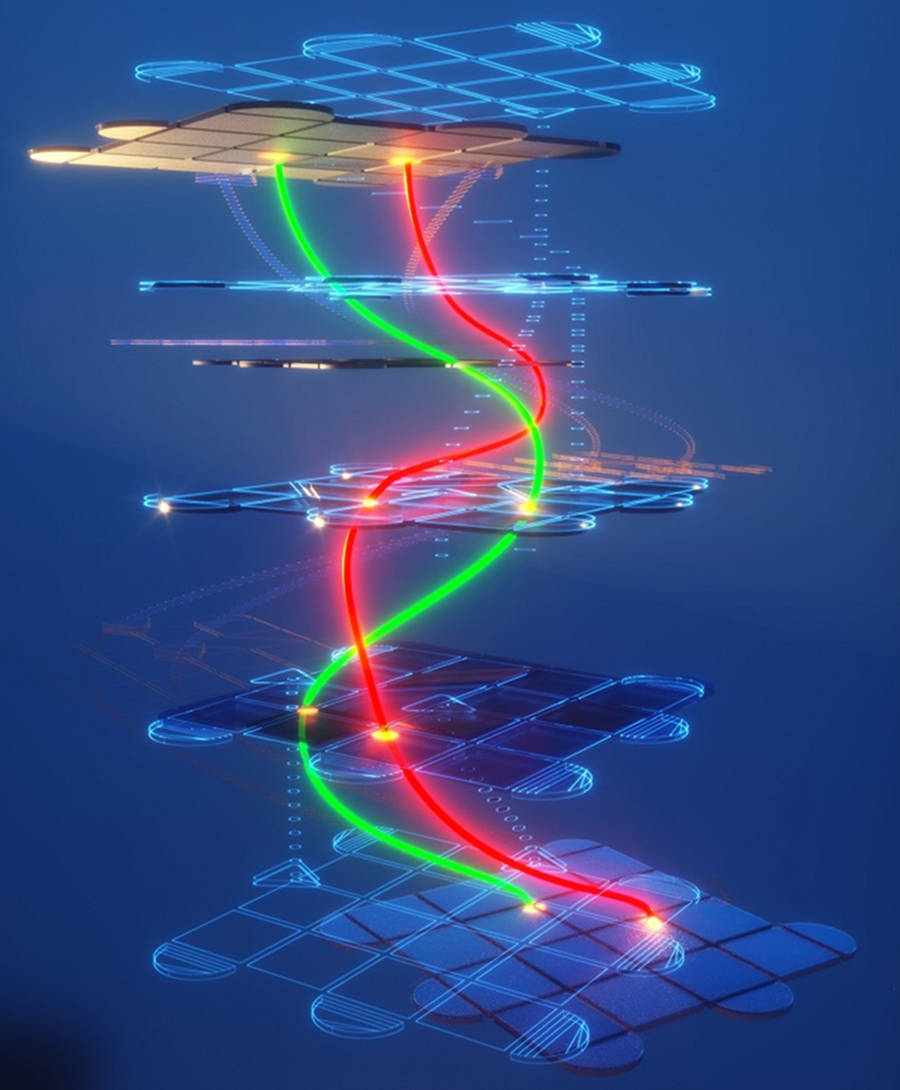
Text/Chen Gen
Recently, according to the latest paper published in Nature magazine, Google used their superconducting quantum processor to observe the strange behavior of non-Abelian anyons and demonstrated how to use this phenomenon to perform quantum calculations. Immediately afterwards, quantum computing company Quantinuum released research results that supplemented Google’s initial findings. The findings open up a new avenue for topological quantum computing, in which operations are performed by winding non-Abelian anyons together, like a rope in a weave.

The so-called non-Abelian anyon is a particle model that has attracted extensive research in topological quantum computing and topological quantum field theory. Anyons are particles that exist in two-dimensional and higher-dimensional topological systems that are different from bosons and fermions. As a type of statistical particle in quantum mechanics, non-Abelian anyons are a special type of anyon whose statistical exchange behavior depends not only on the order of exchange, but also on the internal state of the particle. At the same time, non-Abelian anyons are also considered to be stable qubits that can be used to achieve fault tolerance in topological quantum computing. Topological quantum computing is a new type of quantum computing model that uses topological properties to store and manipulate quantum information. Non-Abelian anyons, as carriers of topological qubits, have some special properties. For example, their quantum states can be entangled encoded and protected from environmental perturbations.
"This first observation of the bizarre behavior of non-Abelian anyons really highlights the exciting types of phenomena that we can now access using quantum computers." said Trond I. Andersen, a member of Google's quantum AI team. It is possible to see two identical objects being exchanged back and forth, but this rule may be broken by non-Abelian anyons. Quantum mechanics supports this idea, but only in the three-dimensional world. If grafted into a two-dimensional plane, quantum mechanics would allow something strange to happen: non-Abelian anyons retain a memory that, although they are identical, can tell when two of them have been swapped.
In a series of experiments, Google researchers looked at the behavior of non-Abelian anyions and how they interacted with more ordinary Abelian anyions; entangling the two types of particles around each other would Producing strange phenomena: particles mysteriously disappear, reappear, and transform from one type to another as they entangle and collide with each other.
The research team observed a hallmark of non-Abelian anyons: when two of them are exchanged, it causes a measurable change in the quantum state of their system, an astonishing phenomenon that has never been observed before. At the same time, the research team also demonstrated how to use the weaving of non-Abelian anyons in quantum computing. By weaving together several non-Abelian anyons, they were able to create a state of quantum entanglement known as the Greenberger-Horne-Zeilinger state.
"It will be very interesting to see how non-Abelian anyons are used in quantum computing in the future, and whether their peculiar behavior can be the key to fault-tolerant topological quantum computing." Trond of Google's Quantum AI Team Andersenyu said.
The above is the detailed content of Gen Chen: Google's quantum artificial intelligence weaves non-Abelian anyons for the first time. For more information, please follow other related articles on the PHP Chinese website!




